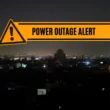The Global Undergraduate Exchange Program (Global UGRAD) for Pakistan has officially ended after a successful fifteen-year run.
The U.S. Department of State informed the United States Educational Foundation in Pakistan (USEFP) that the program will no longer continue for the students in the country.
The program gave thousands of Pakistani undergraduates the chance to study in the United States for one semester on full scholarship.
Since 2010, Global UGRAD has helped students gain academic exposure, develop leadership skills, and experience American culture firsthand through immersive exchange.
The program was highly competitive and known for selecting bright, motivated students from across Pakistan’s diverse educational and geographic backgrounds.
This announcement has disappointed many students, especially those who applied for the 2025 cycle and were awaiting final selection updates.
USEFP expressed deep gratitude to all alumni and applicants for their dedication to education, global understanding, and personal development.
Over the years, UGRAD alumni became positive agents of change in fields such as education, media, government, health, and entrepreneurship.
Though the closure of this opportunity, the department encouraged students to explore alternative international scholarship and exchange opportunities through USEFP and beyond.
The Global UGRAD legacy remains strong, carried forward by its vibrant alumni community and the lifelong connections they’ve built worldwide.
Earlier to this, US Secretary of State Marco Rubio has ordered stricter investigations before issuing visas to student applicants. He has directed diplomats to examine the social media activity of applicants before granting visas.
Rubio stated that the purpose of this policy is to prevent individuals who criticize the United States and Israel from entering the country.
The new directive means that visa officers will now assess an applicant’s online presence, including posts, comments, and shared content.
While supporters argue this step enhances national security, critics warn it could lead to discrimination and suppression of free speech.
Further details on how these investigations will be conducted and their impact on visa approvals remain unclear.










